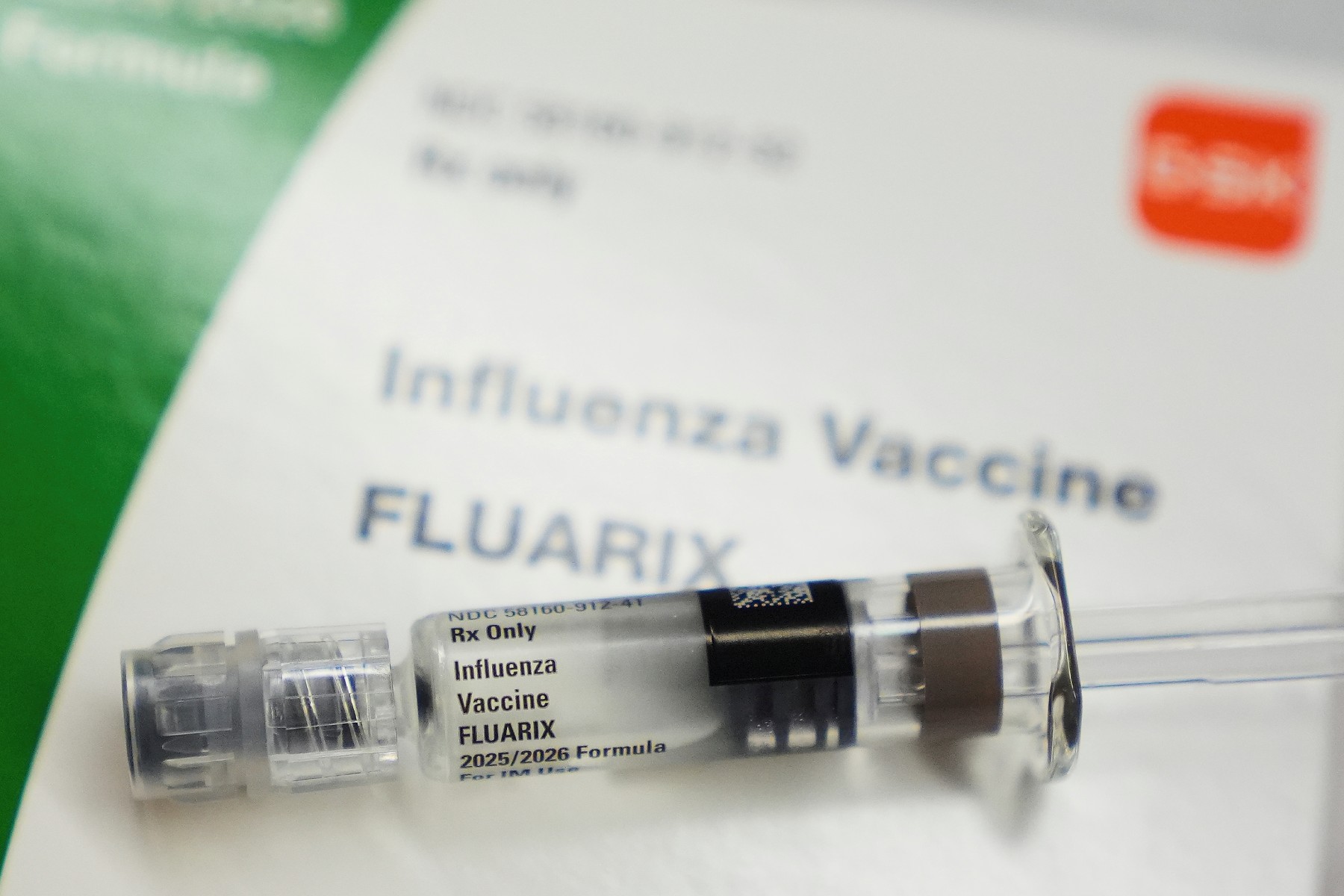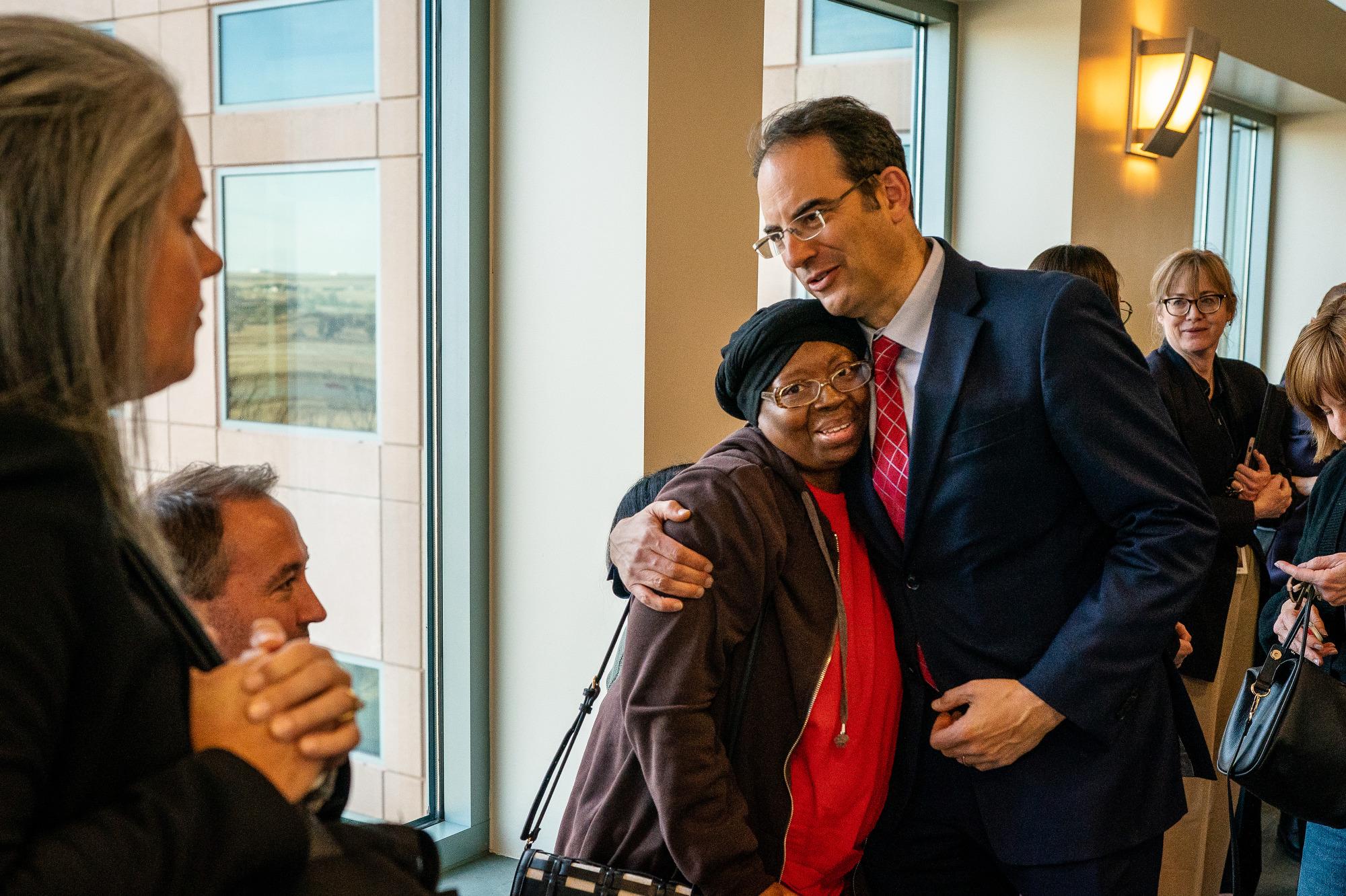
In his first in-depth interview about the trials for officers and paramedics charged with killing Elijah McClain, Colorado’s attorney general said his office helped achieve “a measure of justice,” and that “the best we can do is to honor his memory.”
Phil Weiser’s office convened the grand jury that spelled out charges against three officers and two paramedics who went on trial in fall 2023 and served as the prosecutors in the cases. The paramedics and one officer were found guilty of contributing to McClain’s death. The two other officers who were charged were acquitted.
In August 2019, McClain was walking home after buying iced tea when he was stopped by Aurora police responding to a call of a suspicious person. McClain was not accused of a crime and did not pose a threat, but the officers were violent with him almost immediately, and paramedics who arrived later injected him with the sedative ketamine.
The longest sentence handed down to those guilty in his death was five years in state prison. The others found guilty will serve less time, much of it limited to probation.
Weiser had held off speaking about the outcomes of the trials until the sentencing hearings were complete.
In the interview Monday with CPR’s Colorado Matters, Weiser described several reasons he believes the sentences are not more substantial given the egregious failures that led to McClain’s death.
For example, he said he stands by Judge Mark Warner’s decision to try the individuals in three separate trials, but that it undoubtedly made it harder for his office to prosecute them. Three separate trials meant finding more witnesses, convening separate trial teams, and dealing with the foreseeable finger-pointing of who is to blame for McClain’s death. In the trials, defense teams for the officers blamed the paramedics, and vice versa, which may have affected the jury’s decisions.
In addition to initiating criminal proceedings and prosecuting the cases, Weiser has mandated major reforms within the Aurora Police and Fire Rescue departments, and he’s advocated for state lawmakers to pass new rules that would allow for better oversight of bad officers, with the goal of stopping a similar situation with public safety officials in the future.
“Elijah McClain’s death can and must be an ongoing source of guidance as to what not to do,” Weiser said.
But the reforms have not been easy, and the attorney general identified several future steps he hopes to take.
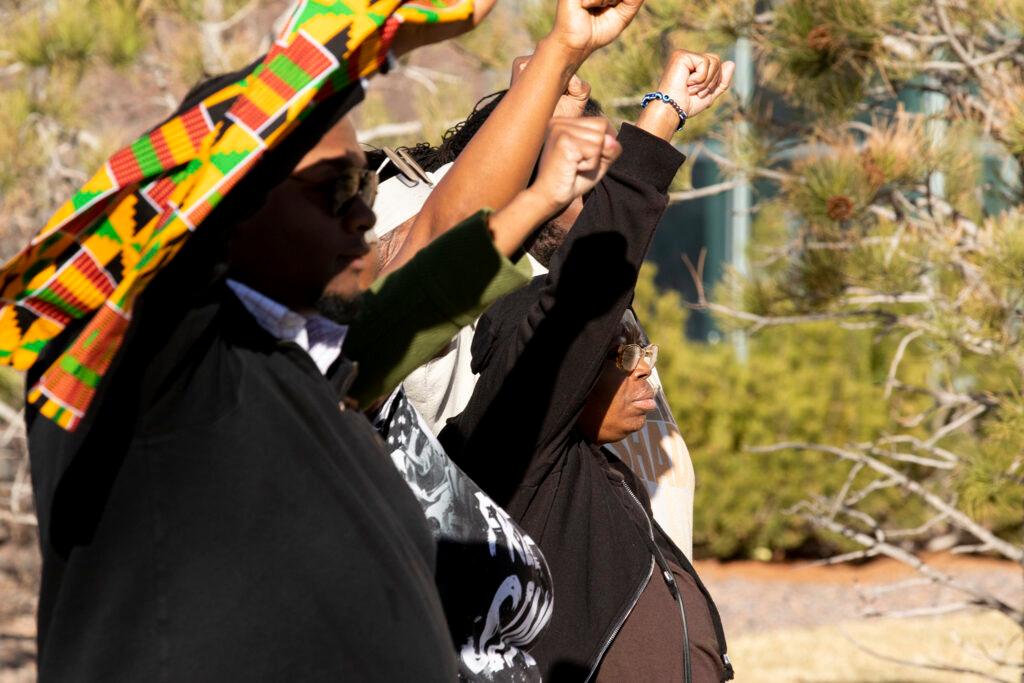
From developing a nationwide database of officers who have been fired to the possibility of extending the reforms underway in Aurora, many of Weiser’s suggestions identify systemic holes in policing and police reform at a national level.
Weiser spoke with Colorado Matters Senior Host Ryan Warner about seeking justice for McClain’s death and his family, and what these trials mean for the future of public safety for all communities in Colorado.
Read the interview
Editor’s note: This interview transcript has been edited for length and clarity.
Ryan Warner: Given the verdicts and sentences handed down, was justice served?
Phil Weiser: I would say that we have a measure of justice for Elijah McClain. The importance of accountability is something that mattered to the community. It mattered to Sheneen McClain, Elijah's mom, and it matters to the rule of law. The principle in our legal system is whoever you are, if you break the laws, it's important to have accountability.
As for the exact length of sentence, there are statutory guidelines that govern this. The judge applied them thoughtfully. The judge said in the final sentencing that it was unthinkable that Elijah McClain ended up dead that day.
You look back at this series of events, it's harrowing, it's painful. It's a tragedy that calls on us to ask, "How do we avoid a situation like this ever happening again?"
Warner: Why do you say “a measure of justice”?
Weiser: Because Elijah McClain is dead. And nothing brings him back.
Those who knew him knew him as a light in their lives. Anyone who's watched the body cam video is chilled by (the fact that) someone who was a nonviolent person, who was a spiritual person, who was a kind person, ends up dead in an encounter where there is no possible theory as to him being a threat. He was walking down the street listening to music, carrying his iced tea and he ended up dead.
There's nothing that could happen that would provide the sort of healing that Sheneen McClain and the community wants. In that sense, the best we can do is a measure of justice. The best we can do is to honor his memory.
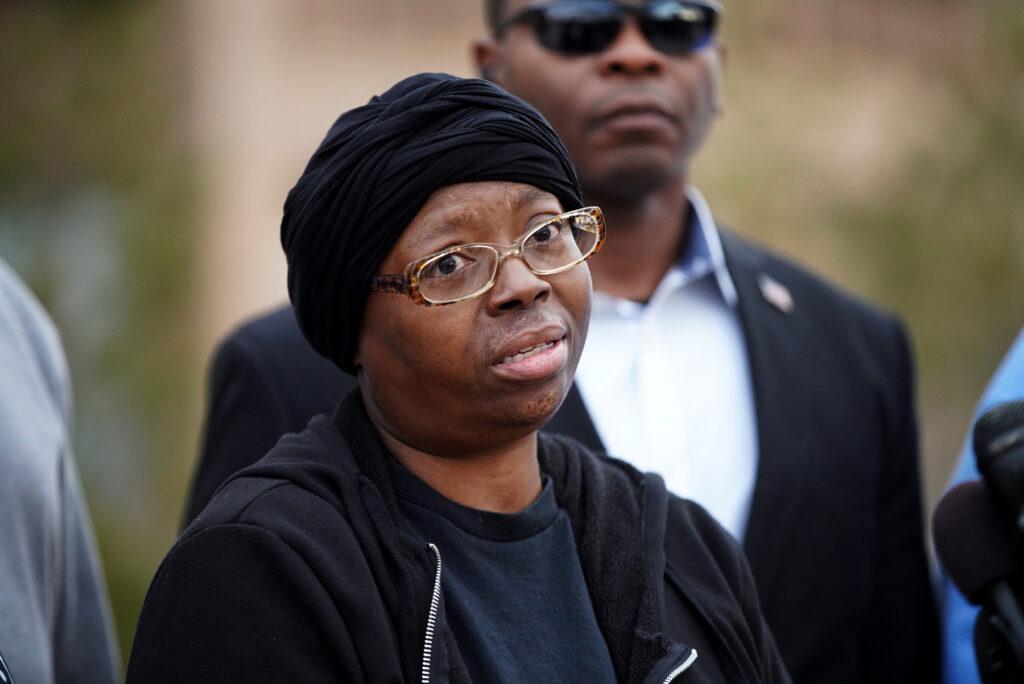
Warner: The paramedic, Jeremy Cooper, who injected McClain with ketamine was sentenced Friday to 14 months of work release and four years probation. Supervising paramedic Peter Cichuniec, who authorized the injection, is serving five years in state prison. And former police officer Randy Roedema is serving 14 months in jail plus probation.
So when you answer whether there's been justice, how much do you take into account the chances this could happen again?
Weiser: The way to avoid this from happening again is to remember Elijah McClain. It's worth underlining what the judge said: There were a series of events and you look at each of them and you think that shouldn't have happened, that was wrong, that was illegal — and we have to do the work of rectifying those problems so that it doesn't happen again.
Let me go through a few of them: The initial encounter that Elijah McClain had with the police escalated immediately for no reason. We've been introducing new police training with this in mind. You start an interaction in a calm way. You don't immediately rile up a situation and continue riling up, which is what happened during the entire course of these events.
Using a carotid hold twice was deadly and was part of what caused Elijah McClain's death. We don't allow that in Colorado anymore because of this death. The actual hold that was used on him has now been rendered illegal.
Bystanders have an obligation to stop something. If people see something happening and someone is hurting or someone's escalating (an encounter) in an inappropriate way, other officers now have an obligation to do something about it. We're training on that, too.
Warner: When you say training, do you mean specifically in Aurora or is that statewide?
Weiser: Both. In Aurora specifically, we developed a consent decree governing Aurora Police and Aurora Fire. In addition, since I took office, our Peace Officer Standards and Training program — which oversees all the police training in the state — has been asking, "How do we rethink police training, putting empathy, putting emotional awareness, putting bystander responsibility at the core?" That work is ongoing as well.
Warner: The officer who initiated physical contact with Elijah McClain is Nathan Woodyard. He put his hands on Mr. McClain very quickly. Yet he did not face a charge of assault, unlike some of the others, and Woodyard was one of the two acquitted.
We asked civil rights attorney Tyrone Glover from the Sam Cary Bar Association about this, and he said: “I think that it's very obvious that the conduct by the initiating officer was also assault.” Woodard even took the stand and admitted he went against his training. So why didn't he face assault charges?
Weiser: I have a lot of respect for Tyrone Glover, and I have a lot of respect for the grand jury. I can't discuss the specifics of the grand jury because state laws govern secrecy. What I can say is the grand jury was incredibly thoughtful and careful in producing the charges that we then brought forward to the jury.
What I can say is having watched the grand jury process where the charges came from and having watched the jury process, I have incredible respect for everybody who served.
Warner: Is there more you want to say about training and how it's changed?
Weiser: I think it's fair to say Elijah McClain’s death can and must be an ongoing source of guidance as to what not to do.
Training bystanders to be aware of others can have a huge impact. I'll give you a quick example. We're now training officers around the state in something called Active Bystander for Law Enforcement. Monte Vista saw a decline of 50% use of force after they did this training. We need to be able to show officers, here's how you engage, here's how you don't engage. We're moving more to experiential learning, putting people in simulations, so that they're better prepared for when they do get into the field.
I could imagine showing the video of Elijah McClain. I can imagine showing a different video, and then I can imagine people in a simulation exercise being told, "Okay, how would you engage?" and put into the situation to learn from.
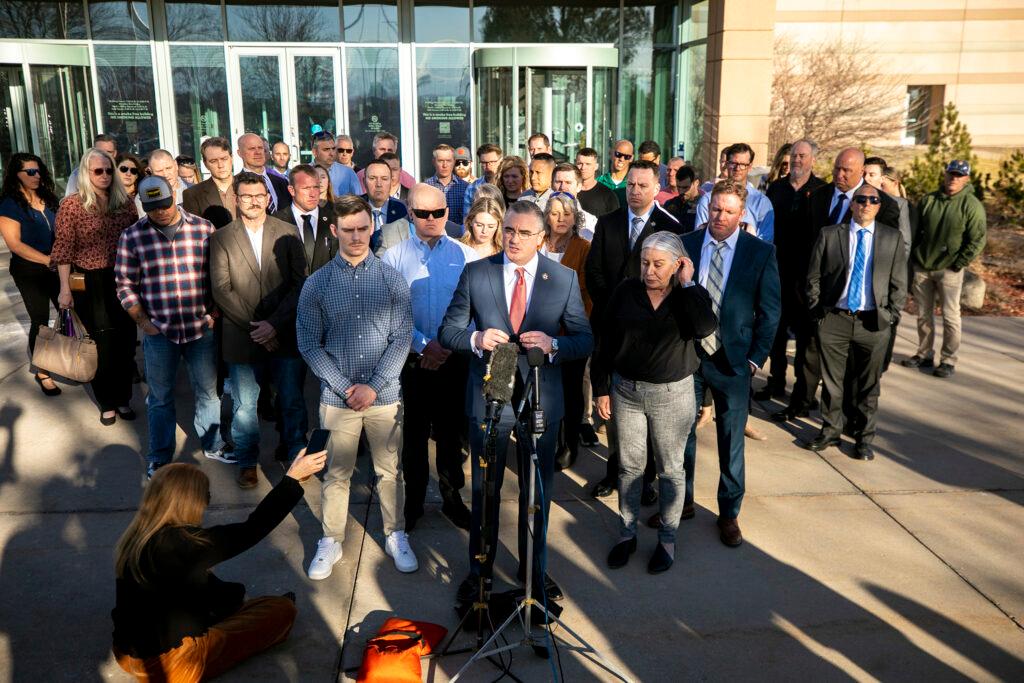
Warner: With regard to the criminal trials for the officers and paramedics, do you think your case was hurt by the fact that they were broken up into separate trials instead of trying them all together?
Weiser: There's no question that having three separate trials made it harder on us in every step of the way. We had to put together three separate teams. They were back-to-back trials, which meant more people had to be prepared. We had the risk (that) in one trial, the paramedics get pointed to as the culprits and the responsible party. And in other trials, it could be ‘No, the paramedics were simply following the police.’ That obviously creates a challenge from proving liability.
But here's the issue: The judge had to make a decision (as to whether) separate trials would better ensure a fair trial. If the judge had done one trial, that would've been a basis for an appeal where individuals could have said their trial was unfair because it was joined. Obviously, you'll never know what could have happened had it been done differently.
Warner: So when there are cases when multiple first responders are involved, and we know that's going to be the case frequently, is there something about the system as it is now that truly allows for accountability?
Weiser: We believe we were able to bring accountability in this case even with the difficulty of three separate trials. A fair trial is a core foundation of our legal system. So I understand why these trials were separated. The judge had to make that decision and then it became our challenge to meet it.
Warner: What have you learned is the effect on people's families when police and other first responders don't do their jobs properly?
Weiser: I want to start by acknowledging how much respect I have for Sheneen McClain, Elijah's mother. The pain of sitting through three separate trials and watching your son be killed again and again and again.
Judge Warner had this to say, and I can echo it: This case changed everybody who was involved with it. Every lawyer who worked on this case, the jurors who were sitting in this case and Sheneen McClain. What I marvel at about her (is her ability to) find purpose through her pain. The pain of losing a son, knowing that there's no reason for it, is something that she will live with for the rest of her life. And Sheneen is a very spiritual person and she's worked to keep Elijah's memory alive, his spirit alive, and she sees his memory as a call to action for all of us and that's something that I will carry with me, as well.
Warner: Simultaneous to the criminal proceedings against the officers and paramedics, you've ordered major reforms in the Aurora police and fire departments. CPR News justice reporter Allison Sherry talked with activist Hashim Coates recently and asked whether he sees improvement in public safety in his community. He said, “I don't think that the culture has shifted much.” How do you respond?
Weiser: We generated a series of requirements for Aurora — how to adopt policies including anti-bias policies, how to implement training like the ones I talked about, and that work is still ongoing. There is a broader point that I also would echo that changing culture does take time and building the trust of the community is a critical part of what Aurora needs to do and that work remains in front of us.
The current police chief in Aurora has made clear that implementing the consent decree is a core priority. I also have to acknowledge Aurora has been through several police chiefs during this recent time. And that makes it harder to achieve the culture change that the consent decree calls for.
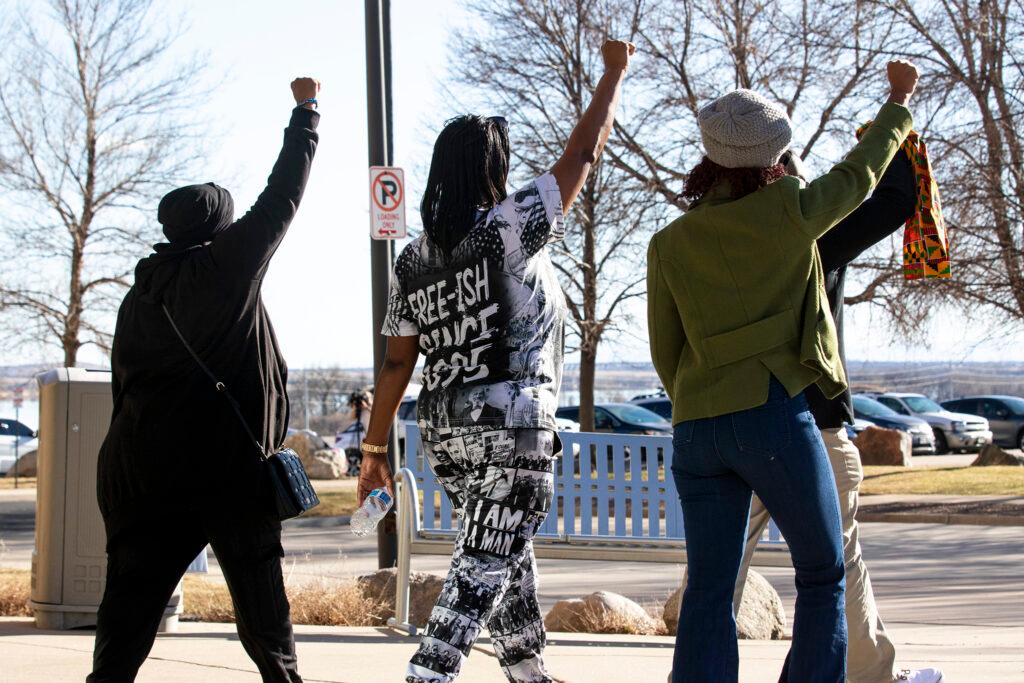
Warner: Aurora has missed some deadlines, including collecting useful data on police interactions and sharing it with the public, and putting in a new anti-bias training for officers. How have you been involved in getting or keeping Aurora on track?
Weiser: Ultimately, we are keeping an eye on this, (but) we're not doing the day-to-day monitoring. That's the role of the monitor (outside the attorney general’s office). But as the deadlines come and if Aurora is not meeting them, we are going to ask what's going on.
Warner: Some community leaders have told us they want to see a permanent independent monitor created for public safety in Aurora – someone whose job it is to actively work with the community and provide a check on the police and fire departments. Aurora city government says it should wait until after the five-year consent decree period. Where do you stand?
Weiser: Aurora needs to think very hard as to how it can achieve community trust. How can it ensure true transparency and how can it meet the requirements of the consent decree? I'm going to leave that decision to Aurora.
Warner: Why?
Weiser: Because there are numerous ways they can go about doing this and I don't want to prescribe one specific way.
Warner: If the consent decree and its goals are not met, could the five years be extended?
Weiser: Yes. The consent decree’s five-year (period) is not a prescribed limit.
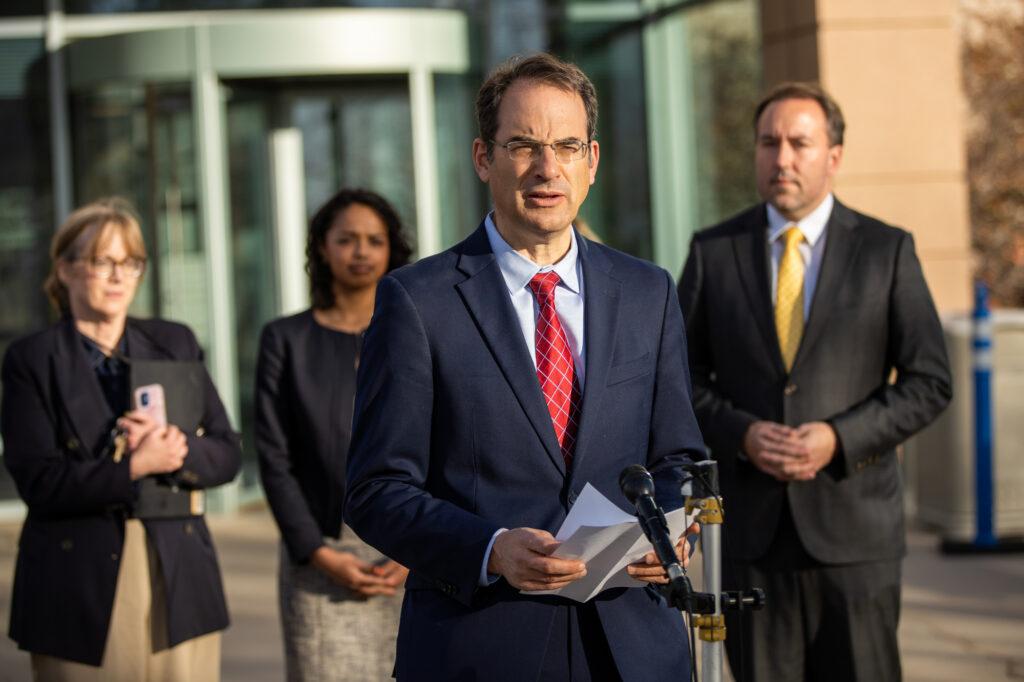
Warner: Video played a huge role in these trials. To attend the trials was to watch this encounter over and over and over again. To what extent do you think body-worn cameras played a role in these cases and are you satisfied with the requirements around their use?
Weiser: Colorado has enacted a body-worn camera requirement and provided funding for law enforcement. Body-worn cameras are an extremely effective tool for promoting transparency and enabling accountability.
Warner: Do you know if departments are routinely looking at body camera footage for smaller infractions or to help with training to say, "You could have done this better?"
Weiser: That's part of what we are calling on Aurora and more broadly policing to engage. You might call it a reflective culture of continuous improvement. Body-worn cameras provide an excellent basis to do that. In Aurora, under the consent decree, there are efforts to do just that.
Warner: It seems to me that protests played a major role in spurring you and Governor Jared Polis to press for justice for Elijah McClain. Is that true in your mind, that protests work and that they worked here?
Weiser: I don't have the authority on my own to be a special prosecutor; it's a decision of the governor. I can't speak for the governor in terms of what motivated him to appoint me in this case. As for the importance of protesters, there were protests around the George Floyd murder that called for measures like some of the ones we're talking about.
What I would emphasize is the agenda that I came in with included how we improve policing. After George Floyd's murder, the legislature in Colorado asked ‘What can we do to improve policing and build more public trust in it?’ We had a number of ideas like those, too. We now have more authority in our department to encourage better policing and to build more public trust in policing.
Warner: I hear you taking a fair amount of credit there. Do you think the protests supercharged your agenda then?
Weiser: Without the public call for action, I'm not saying we would've had the laws. We had suggested ideas that hadn't moved. You are correct that people protesting George Floyd's murder pushed Colorado's legislature to act. I'll give credit to legislators and law enforcement for having really thoughtful discussions where they worked together to come up with principles and requirements that we're now charged with implementing.
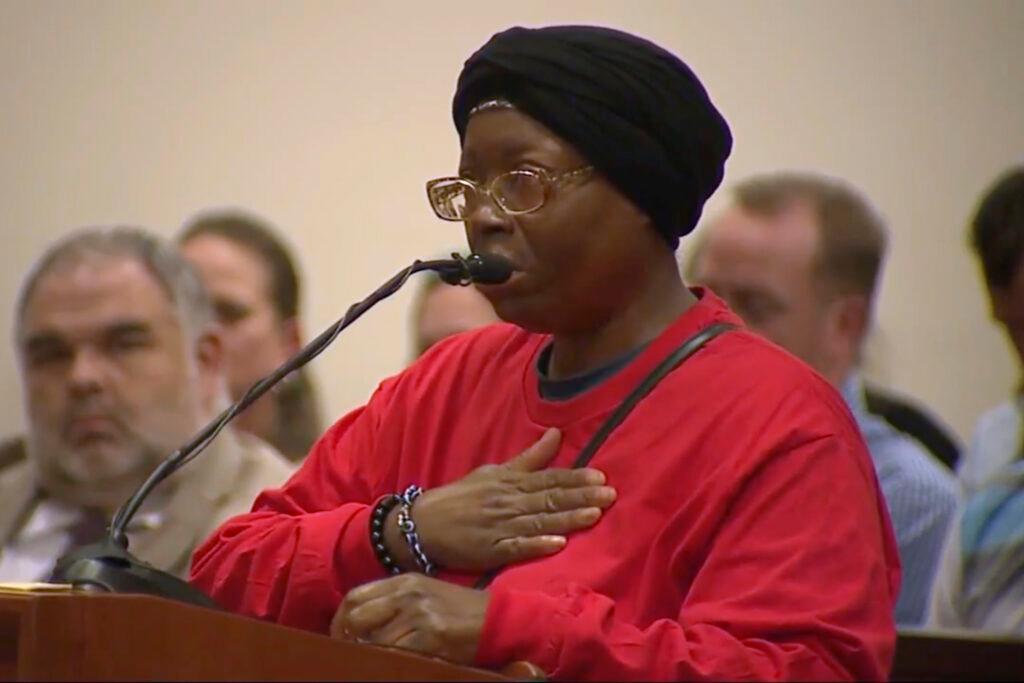
Warner: A major concern in the community is that it's too easy for officers who don't fulfill their duty to stay on the job or bounce around to other law enforcement departments. In response to this, you've fought for the agency that certifies officers to have more investigative power. For example, to allow them to see officers' records more easily.
And this is all against the backdrop of a shortage of officers. So there's a lot of pressure on departments to hire. What change do you hope the community will see as a result of these efforts?
Weiser: We are committed to encouraging good people to enter policing. I have so much respect for those who serve in the profession. And when people dishonor the profession, it's important that they be held accountable. Our office decertifies them and we also — in the same law that we're talking about called Senate Bill 217 — we built a database of officers who were fired for cause or resigned in lieu of being investigated for cause.
They're now in a database to prevent what you just noted from happening — getting rehired after having harmed people or dishonor the profession in some way.
Warner: That’s a state database. In other words, could they go to another state?
Weiser: Yes. We have a need for a national database. The one we have is only Colorado. We also investigate anyone who's going to get certified in Colorado. So ideally if they did something somewhere else, we'll find out about it. They're required to tell us. We (also) want more authority to investigate. We don't have all the authority we need. We're going to keep pushing for that.
Warner: In contrast to some of what we've been discussing, CPR reader Michelle Bridwell sent in this question: "How will EMTs ever feel safe again giving drugs to apprehended individuals with the weight of possible prosecution looming in the back of their minds?"
Do you see the potential for community safety to be negatively affected in some way by the prosecutions you've pursued?
Weiser: I believe in the prosecutions we pursued because they did not involve what some characterized as split-second decisions about how to save someone's life. In this case, the EMTs did not examine Elijah McClain when he was near unconscious. They weren't seeking to provide lifesaving treatment when he needed it. Instead, they provided a lethal dose of ketamine without examining him beforehand and without monitoring him afterwards. The grand jury and then the jury reviewed that conduct and found it to be criminal.
Like those who serve in law enforcement and who are following training and who are serving the public, we need good EMTs. Nobody, regardless of their profession, should ever get a pass from having to follow the law and treat people appropriately.
Warner: When we began talking, you said this was a ‘measure of justice.’ Were the verdicts hefty enough that you think policing and first responder responsibilities were changed by these trials?
Weiser: These trials absolutely are having a significant impact. They are going to change policing in Aurora, in Colorado, and there's even been attention nationally. In this interview, we've talked about a number of steps that have come through different measures. We've talked about public engagement and awareness. I believe Elijah McClain's memory is going to live on for a blessing.



